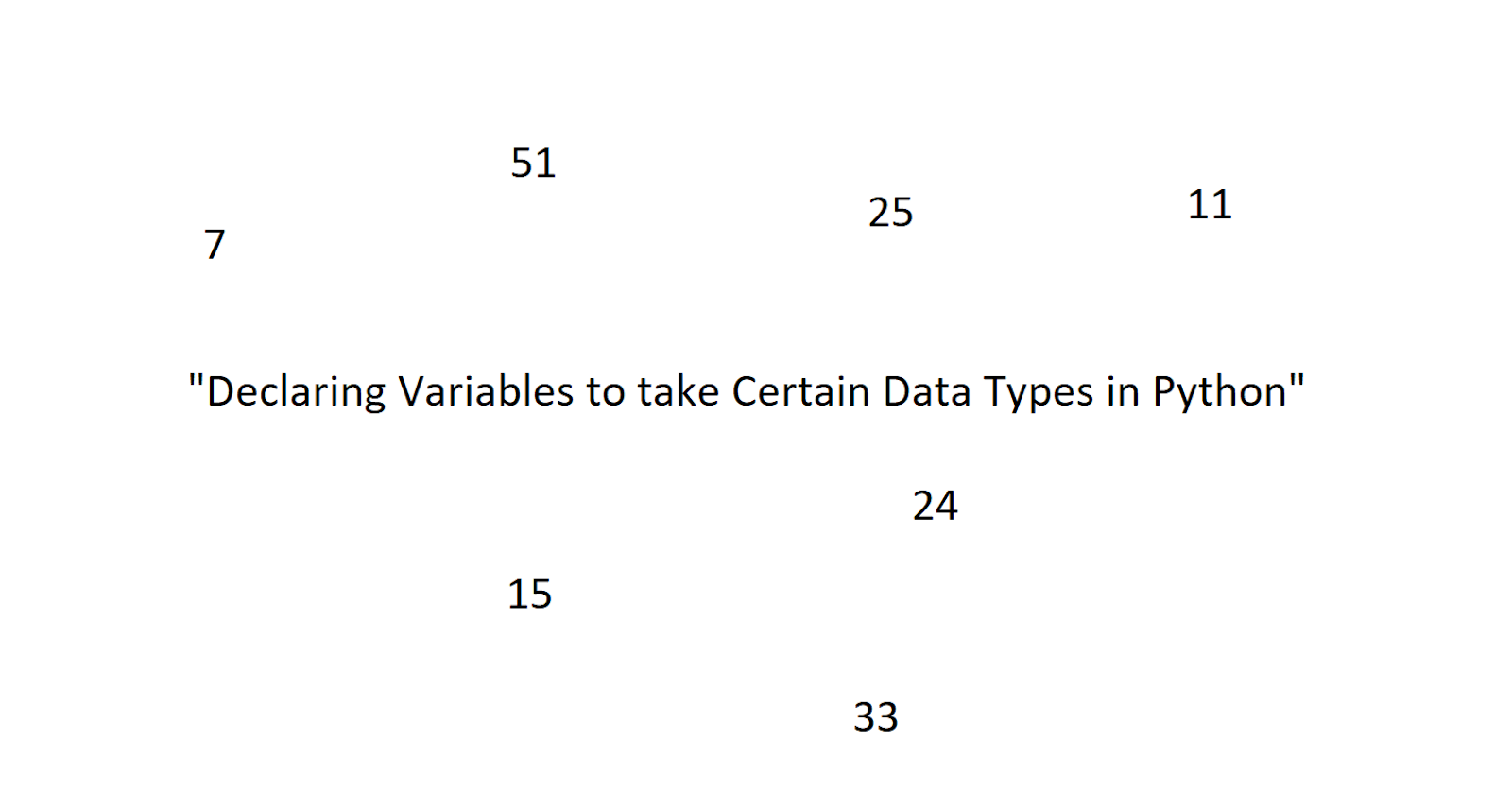Overview
This article will explain how to create a variable in Python that can be specified, to take a certain data type. This tutorial showcases one scenario where the variable will always accept an integer and another where it will accept a string.
Materials
Computer
Python
IDE
Procedure: Create a Function How to Always Accept an Integer
First, declare a function and within it, a while loop by stating "while True:"
#!/usr/bin/env python3
def declare_variable():
while True:
While statements always execute a set of commands within the block if it is true. In this case, it will always execute the code if it is set to "True".
Within the while statement, implement a try and except statement. In the try block, specify the variable to take an integer and the keyword "break". If a number is successfully passed and the "break" is not in the code, it will still ask for a number. "break" exits the block if it receives a successful output.
"except" is added to Python scripts to print out code if it receives a certain error. If an integer is not received, usually it would be a ValueError and exit the program. By implementing "except ValueError" and writing code within the block, will execute the code and continue the program.
#!/usr/bin/env python3
def declare_variable():
while True:
try:
pass_a_number = int(input("Please enter a number:"))
break
except ValueError:
print("Invalid input. ", end="")
Afterward, an, if and else statement is implemented to check if the variable passed, is an integer. If an integer is not passed, then the if statement will re-execute the function again to ask for an integer.
#!/usr/bin/env python3
# Completed Script
def declare_variable():
while True:
try:
pass_a_number = int(input("Please enter a number: "))
break
except ValueError:
print("Invalid input. ", end="")
if pass_a_number != int(pass_a_number):
print(declare_variable())
else:
return "The integer " + str(pass_a_number) + " was passed."
print(declare_variable())
Procedure: Create a Function How to Always Accept a String
First, declare a function and a variable that accepts a string data type:
#!/usr/bin/env python3
def check_for_string():
validate_string = input("Enter a word: ")
Next, write an if and else statement to check if the variable "validate_string" is a string by using the built-in function ".isalpha()". ".isalpha()" checks if any variable contains a string data type only. If "validate_string" is a string data type, then the else statement executes the "check_for_string()" function again to accept a string data type.
#!/usr/bin/env python3
# Completed Script
def check_for_string():
validate_string = input("Enter a word: ")
if validate_string.isalpha() == True:
return print(validate_string)
else:
print("Not a valid word.")
check_for_string()
check_for_string()
Source Code
https://github.com/AndrewDass1/SCRIPTS/tree/main/Python/Check_For_Data_Types

